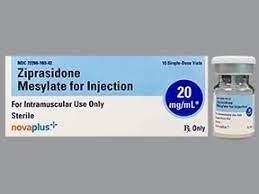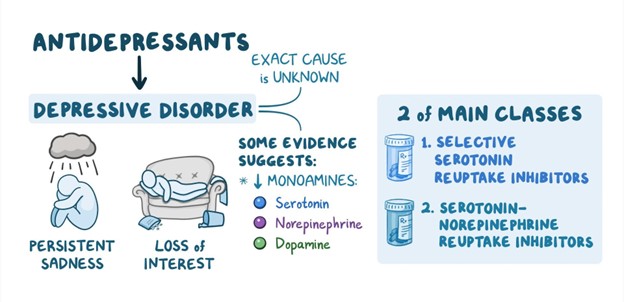A nurse is preparing to administer ziprasidone 10 mg IM every 6 hr. Available is ziprasidone 20 mg/mL. How many mL should the nurse administer per dose? (Round the answer to the nearest tenth. Use a leading zero if it applies. Do not use a trailing zero.)
The Correct Answer is ["0.5"]
To calculate the amount of ziprasidone 10 mg IM from the available concentration of 20 mg/mL, you can use the formula:
Amount (mL) = Desired Dose (mg) / Concentration (mg/mL)
Amount (mL) = 10 mg / 20 mg/mL
Amount (Ml) = 0.5 mL
Therefore, the nurse should administer 0.5 mL of ziprasidone per dose.

Nursing Test Bank
Naxlex Comprehensive Predictor Exams
Related Questions
Correct Answer is ["2"]
Explanation
The nurse should administer 2 tablets of olanzapine 10 mg orally-disintegrating tablets per dose.
Here's the calculation:
20 mg (desired dose) ÷ 10 mg (strength of each tablet) = 2 tablets
So, the nurse should administer 2 tablets of olanzapine 10 mg orally-disintegrating tablets per dose.
Correct Answer is B
Explanation
This action might be premature. MAOIs (Monoamine Oxidase Inhibitors) are a class of antidepressants with specific dietary and medication interactions. They are typically considered when other classes of antidepressants have not been effective. It's important to exhaust other options before considering a switch to MAOIs.
B. Explain that antidepressants often take several weeks to be fully effective:
Explanation: Correct Answer. This is an appropriate response. Antidepressants, including citalopram, can take several weeks to show their full therapeutic effects. It's common for some symptoms to improve before others. Educating the client about the delayed onset of action is important to manage their expectations.
C. Tell the client that the provider will need to change citalopram to a different medication:
Explanation: It might be too early to consider changing the medication after just two weeks, especially since the client reports an improved appetite. Changes in dosage or medication should ideally be discussed with the provider after an adequate trial period.
D. Recommend a sleep study be done on the client:
Explanation: While sleep problems can be associated with depression, it might not be the most appropriate next step based solely on the information provided. It's more important to address the ongoing depressive symptoms before focusing solely on sleep.

Whether you are a student looking to ace your exams or a practicing nurse seeking to enhance your expertise , our nursing education contents will empower you with the confidence and competence to make a difference in the lives of patients and become a respected leader in the healthcare field.
Visit Naxlex, invest in your future and unlock endless possibilities with our unparalleled nursing education contents today
Report Wrong Answer on the Current Question
Do you disagree with the answer? If yes, what is your expected answer? Explain.
Kindly be descriptive with the issue you are facing.
